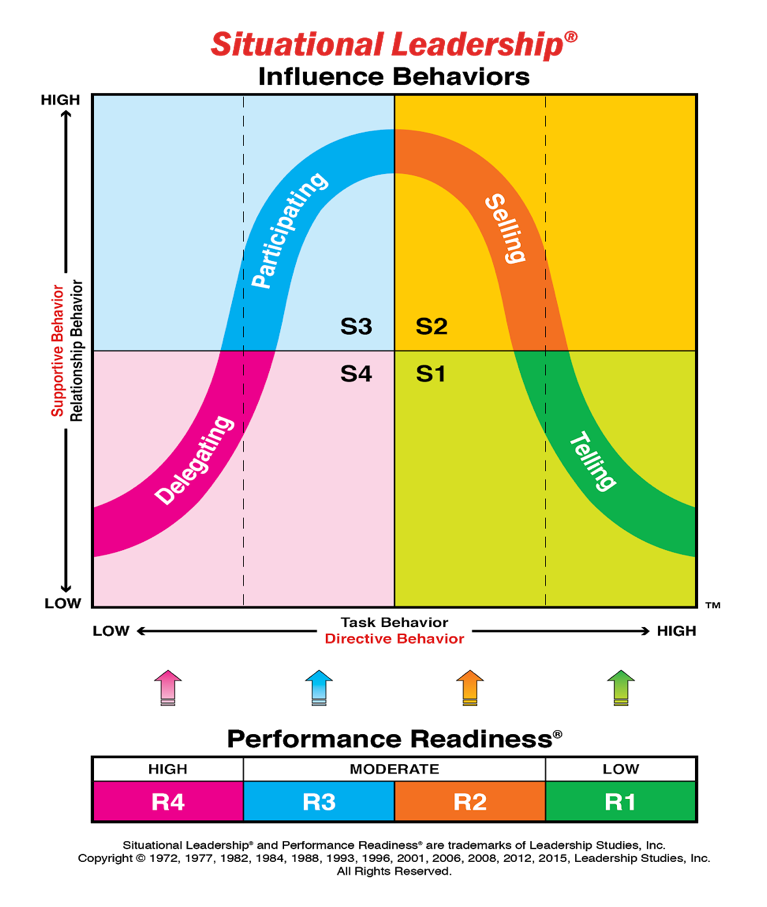DOOR International South East Asia
The Global Home of Situational Leadership
Unlock Your Leadership Potential with the Situational Leadership® Model. Guide your team to Success and Foster a Culture of Growth and Development.
Effective leadership requires adapting to the unique needs and preferences of different individuals and groups. Situational Leadership® Model provides leaders with a practical and timeless framework to match their behaviors with the needs of their team, resulting in optimal performance and success. By mastering this adaptable approach, you can empower your team to achieve their best, no matter the situation.
Whether you are leading a small team or a large organization, the Situational Leadership® Model is a repeatable tool that will help you succeed in any professional setting. Transform your leadership style and become the inspiring and effective leader your team deserves!

What is it Situational Leadership®?
Situational Leadership® is a practical and repeatable method that leaders use to influence others. The first step in this model is to clearly define the task or objective that needs to be accomplished. In addition, both the leader and the follower assess the follower’s readiness to perform the task. Based on this assessment, leaders choose an approach or style that aligns with their desired outcome, such as empowerment, guidance, or collaboration. By selecting an appropriate style, leaders increase their chances of success in achieving the task at hand.
Get Brochure
Four Core Competencies
The Four Core Competencies of Situational Leadership® theory, refer to a set of skills that effective leaders should possess in order to effectively lead and support their team or organization. These competencies include the ability to diagnose an individual’s performance readiness, adapt their leadership style based on the needs of the situation and the individual, communicate effectively with their team, and manage the movement towards higher performance.
The Situational Leadership® model is based on the idea that the most effective leadership style will depend on the readiness of the individual or team being led. The model identifies four levels of readiness:
- R1: Unable and Insecure or Unwilling
- R2: Unable but Confident or Willing
- R3: Able but Insecure or Unwilling
- R4: Able and Confident and Willing
The leader’s job is to diagnose the readiness level of the individual or team and then adapt their leadership style to match the needs of the situation. This may involve providing more support and guidance for individuals who are less skilled and less confident, while providing more autonomy and delegation for those who are more skilled and confident.
Effective communication is also an important aspect of situational leadership®. The leader should be able to clearly articulate their expectations and provide feedback in a way that is understandable and accepted by the team. Finally, the leader should be able to manage the progress towards higher performance by setting goals, providing resources and support, and helping the team to overcome any obstacles or challenges that may arise.
I'm Interested
The Benefits of Situational Leadership®
- Ensures a common language of performance
- Multidirectional influence is taken into account
- Assesses employee performance based on task specificity rather than typecasting
- Allows leaders to effectively drive behavior change
- Accelerates the pace and quality of employee development
- Teaches leaders to accurately interpret and effectively respond to their environment
The Benefits of Situational Leadership®

Situational Leadership® Courses
Building Leaders
In addition to building leaders, this course teaches them how to motivate and engage their team members, which can improve employee retention and satisfaction.
Taking Charge
This course teaches learners how to develop a better understanding of taking charge, as well as of leadership and how it impacts both the success of the organization and its engagement.
Situational Coaching ®
The cause of this situational leadership course, is to help the individuals provide an iterative progression of targeted and intentional opportunities for case study application, coaching skill practice and feedback.
Empowering Situational Leaders ®
This DOOR training program gives situational leaders the tools, resources, and support they need to effectively adapt their leadership style.
